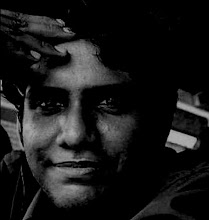It is with great pride and gusto that we have entered the 21st century. On the fifteenth of august 2007, we will proudly celebrate the 60th year of independent India. Politicians will stand on the podium at the Raj-Path and watch defense personnel march past them. Many people will appear on many television channels and speak highly about the progress of our nation and the glory of our nation. After the party has ended and the high and mighty have gone back into their castles, the man on the street is left standing where he always was, on the street. The hype and the glamour have brought no change to his life, except maybe the confetti that now clutters his street.
The man on the street was there even in 1947, at that fateful midnight hour, when India was declared a free country, a sovereign state. His eyes were full of hope, hope for a better future, but now he is still standing there and the hope is fading from his eyes. He harks back to the past, a broken man he is now, "if only", he thinks, "if only I was an only child, and not one among twelve, if only I had a job, if only..."
Such is the plight of many a youth in our allegedly glorious country. Though employment has improved over the years thanks to the IT industry, the number of unemployed youths has shot up. This is because of our booming, burgeoning population. Yes, I did call ours an "allegedly glorious country". And yes I do believe that the glory is an allegation with little truth in it. How can a country be glorious, if the people who grow the country's food- the farmers commit suicide? How can we be glorious, if on one hand we raise the image of a simple man by the name of Mohandas Karamchand Gandhi by using superlatives like "Mahatma" and "father of our nation" and on the other hand exhibit an open and blatant disregard for his ideals?
The blame for this lies on two systems, one is our system of administration, the other is our system of education. Fine, both are huge systems, both are shouldering an immensely large burden fairly well and they are producing results. Lets tackle the system of administration first.
Our system of administration is what one would call a "top-down" administration. That is, there is one person at the top, he/she has some people under him/her to assist him/her and these "minions" have other people under them to assist them, and thats how it goes down all the way to the bottom. What does this mean? Well, it means that the man on the street has no real power. Oh yeah, this is a democracy, and that means that people rules themselves, and we have the wonderful lines written in the preamble to our constitution (borrowed from the constitution of the USA) which starts with the words "...for the people, by the people, to the people...". Pardon my insight but that is a fairytale that every Indian is made to believe. A caption that would say "by the politicians, for the politicians, to the politicians" would be more apt for whats happening in our country today.
Is there an alternate system that can be put into place? Oh yeah there is. That would be whats called a "bottom-up" system. Basically that puts all the power in the hands of the people at what Mahatma Gandhi called the grass-root level. There will be a person above his level and he will have control over only those matters that fall under 2 or more grass-root administrators, this system goes on to the top where the head of state has control over generalized things like national security, the economy, foreign affairs and so on. This system puts real power in the hands of the man on the street.
If this system is so good, why isn't it already in place? Well, when India got independace, and Nehru became the first Prime Minister of India, he didn't think it was necessary to change the system of administration that the British had set up, so he let it be. And the British had set up this for one purpose alone, to loot this country. And Nehru's successors, saw that this system was beneficial to their own power hungry and money hungry needs, so they too didn't change it.
Now lets tackle our education system. Yes, we think we have the best one in the world. Then why is it that none of our Universities (even the much hyped and overrated IITs) aren't in the top ten or even the top twenty Universities of the world? The reason- they are all seriously overrated. Take a peek into any of the schools in India, in Andhra Pradesh in particular. The first thing that is drilled into the head of the student is "don't use your head, learn whats in the book by heart and write only that". It is this edict that stifles and throttles any creative spark in any child, and snuffs it out. If there is no creative spark, there is no avenue for innovation, and a graduate without any avenue for innovation is a substandard graduate.
Furthermore, the Indian education system in general places emphasis on Mathematics and the Sciences, Social Sciences, especially History take a back seat and are often brushed aside as being useless. The result of this is a batch of students who have no national pride. The historians of our country are partially to blame for this. They write their history books with such high flown language, and in such a boring matter-of-fact manner that all the thrill and excitement is taken out of them. The Arts are another casualty of this system. Languages and fine arts take a serious beating, and English and Hindi and other languages like Sanskrit and so on are learnt "just because they are in the curriculum". And fine arts like painting and music aren't even taken seriously. Why? Because they don't carry marks. The result is a gaudy society with no sense of art or style what-so-ever, ugly buildings that make any international tourist want to puke, and many other things that cant be mentioned for sake of decency.
The result is a society that hankers after wealth and nothing else, their attempts to appear modern, open-minded and cosmopolitan often result in vulgarity and garishness and they have a total disregard for anyone but themselves. They have very shallow ideals, and they are easily swayed by politicians and god-men who are seldom true to their word.
Therefore we think we have to blame the system of Administration and the system of Education for the plight of the man on the street, but ultimately, the blame lies with us, because we have allowed these flawed systems to exist for the past 59 years.
20061230
Subscribe to:
Posts (Atom)







